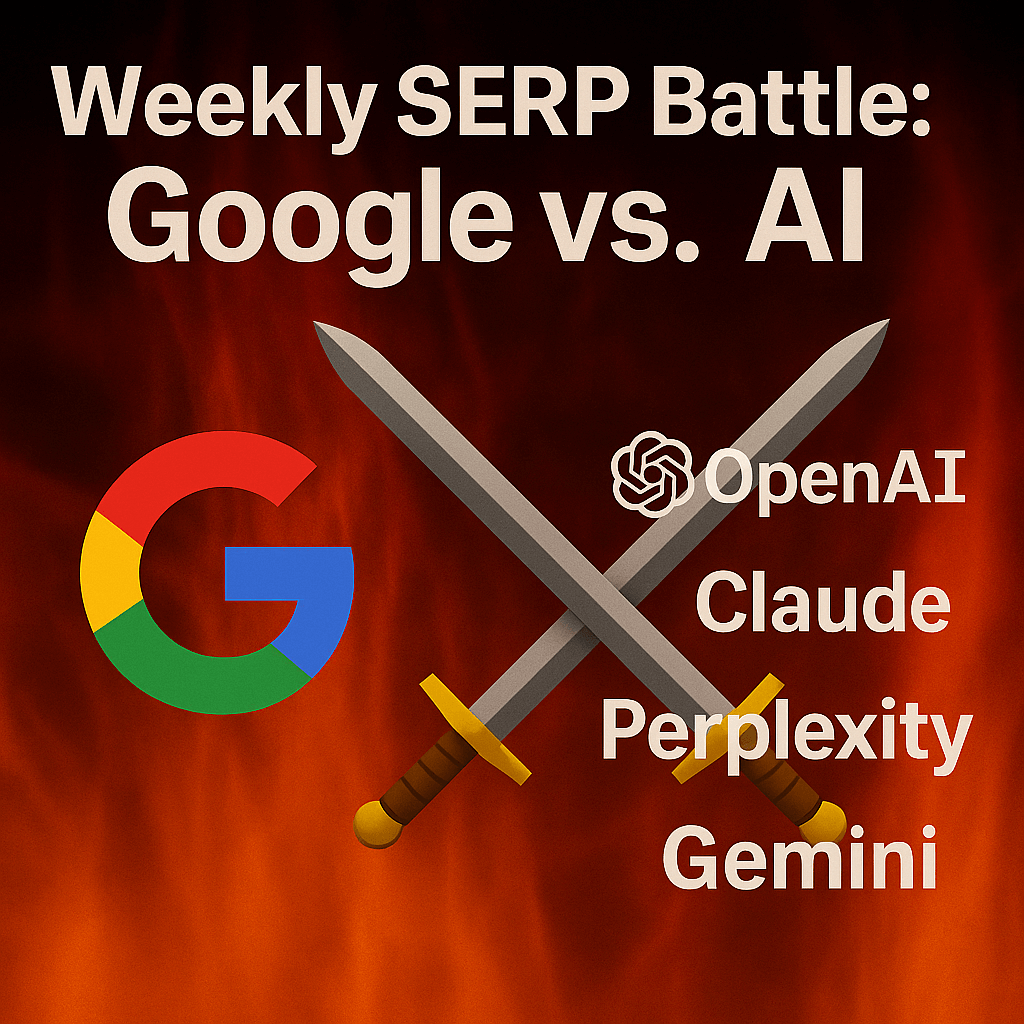TLDR: Best Content for AI Search Rankings
- Go deep with genuine expertise – AI aggregates surface-level info easily, so create comprehensive content with unique insights, nuances, and perspectives that can’t be synthesized from generic sources
- Answer questions directly and structure for extraction – Use clear Q&A formats, put core answers upfront, and create self-contained sections that AI can easily parse and cite
- Showcase first-hand experience and original data – Include real testing, case studies, specific results, and original research that AI cannot replicate and must cite as primary sources
- Build topical authority with content clusters – Develop interconnected content that thoroughly covers specific domains rather than scattered topics, establishing your site as the go-to expert
- Prioritize accuracy, freshness, and analytical depth – Regularly update content, cite reputable sources, verify all claims, and provide thoughtful analysis beyond mere information aggregation
The emergence of AI-powered search engines like ChatGPT, Perplexity, Google’s AI Overviews, and Microsoft’s Copilot has fundamentally transformed how content gets discovered and consumed online. Unlike traditional search engines that simply rank links, AI search tools synthesize information from multiple sources to provide direct answers. This shift demands a strategic rethinking of content creation. So what type of content performs best in this new AI-driven landscape?
Prioritize Depth and Expertise
AI search engines excel at aggregating surface-level information, which means shallow content that merely scratches the topic’s surface offers little unique value. The content that rises to the top demonstrates genuine expertise and provides depth that AI cannot easily synthesize from multiple generic sources.
Focus on creating comprehensive resources that dive deep into specific subjects. This means going beyond basic definitions and explanations to explore nuances, edge cases, and practical applications. When you write with true expertise, you provide insights and perspectives that AI models will recognize as authoritative and cite as valuable sources. Think of your content as contributing something meaningfully new to the conversation rather than rehashing widely available information.
Answer Questions Clearly and Directly
AI search engines are fundamentally designed to answer user queries, so content structured around clear question-and-answer formats performs exceptionally well. Begin sections with the questions your audience actually asks, then provide concise, accurate answers supported by detailed explanations.
This doesn’t mean adopting a rigid FAQ format for everything, but rather ensuring that your content directly addresses user intent. Use natural language that mirrors how people actually phrase questions. Structure your information so that AI models can easily extract relevant answers to present to users. The first few sentences of each section should contain the core answer, with subsequent paragraphs providing context, examples, and supporting details.
Demonstrate First-Hand Experience
One area where AI-generated content consistently falls short is genuine, first-hand experience. Content that showcases real-world testing, personal experimentation, original research, or unique case studies becomes incredibly valuable in an AI search ecosystem.
Share specific examples from your own work, include original data from experiments you’ve conducted, or provide detailed case studies with measurable outcomes. This experiential content serves as primary source material that AI cannot replicate and must cite when users ask for practical, tested information. Include specific numbers, timelines, and tangible results that prove you’ve actually done what you’re discussing rather than just theorizing about it.
Optimize for Featured Snippets and Citations
Since AI search tools extract and present information rather than just linking to it, your content needs to be easily parsable and quotable. Use clear headers, concise paragraphs, and well-structured information hierarchies that allow AI models to identify and extract key points.
Create content with distinct, self-contained sections that can stand alone when quoted. Each major point should be understandable even when removed from surrounding context. This increases the likelihood that AI search engines will cite your content when answering related queries. Include relevant statistics, definitions, and key takeaways in formats that are easy for AI to identify and extract.
Build Topical Authority
AI search engines increasingly favor content from sources that demonstrate comprehensive authority on specific topics rather than generalist sites with scattered information. Instead of writing sporadically about many unrelated subjects, develop clusters of interconnected content that thoroughly cover specific domains.
Create cornerstone content pieces that serve as definitive resources on core topics, then support these with related articles that explore specific subtopics in detail. This interconnected content structure helps AI models understand your site as an authoritative source within your niche, increasing the likelihood they’ll reference your content when answering queries in that domain.
Include Current and Updated Information
While AI models are trained on historical data, they prioritize fresh, current information when available. Regularly update your existing content with new developments, recent examples, and current data. Include publication and update dates prominently so AI systems can assess the timeliness of your information.
For topics that evolve quickly, commit to maintaining evergreen content through periodic updates rather than letting it become outdated. This ongoing maintenance signals that your content remains relevant and trustworthy, qualities that AI search engines value highly.
Provide Unique Perspectives and Analysis
Commentary, analysis, and unique perspectives that reflect critical thinking stand out in AI search results because they offer value beyond information aggregation. Don’t just report what exists—analyze why it matters, explore implications, and offer thoughtful perspectives informed by your expertise.
This analytical content serves a different purpose than purely informational content, and AI search engines recognize this distinction. When users seek understanding rather than just facts, AI models will favor sources that provide insightful analysis over those that simply present information.
Maintain High Standards for Accuracy
AI search engines increasingly evaluate content for factual accuracy and reliability. Cite reputable sources, link to primary research, and ensure every claim can be verified. Inaccurate information not only damages your credibility with AI systems but can also lead to your content being deprioritized or filtered out entirely.
Include proper citations and references that allow both AI systems and human readers to verify your claims. This commitment to accuracy builds trust with AI search algorithms and establishes your content as a reliable source worthy of citation.
Conclusion
Ranking well in AI search requires a fundamental shift from traditional SEO tactics toward creating genuinely valuable, authoritative content. Focus on depth over breadth, demonstrate real expertise and experience, structure information for easy extraction, and maintain the highest standards for accuracy and currency. The content that succeeds in this new paradigm isn’t optimized primarily for algorithms—it’s created to genuinely serve human needs while being structured in ways that AI systems can effectively access and cite. By prioritizing these principles, you’ll create content that performs well not just in AI search today, but remains valuable as search technology continues to evolve.
TLDR: Best Content for AI Search Rankings
- Go deep with genuine expertise – AI aggregates surface-level info easily, so create comprehensive content with unique insights, nuances, and perspectives that can’t be synthesized from generic sources
- Answer questions directly and structure for extraction – Use clear Q&A formats, put core answers upfront, and create self-contained sections that AI can easily parse and cite
- Showcase first-hand experience and original data – Include real testing, case studies, specific results, and original research that AI cannot replicate and must cite as primary sources
- Build topical authority with content clusters – Develop interconnected content that thoroughly covers specific domains rather than scattered topics, establishing your site as the go-to expert
- Prioritize accuracy, freshness, and analytical depth – Regularly update content, cite reputable sources, verify all claims, and provide thoughtful analysis beyond mere information aggregation





